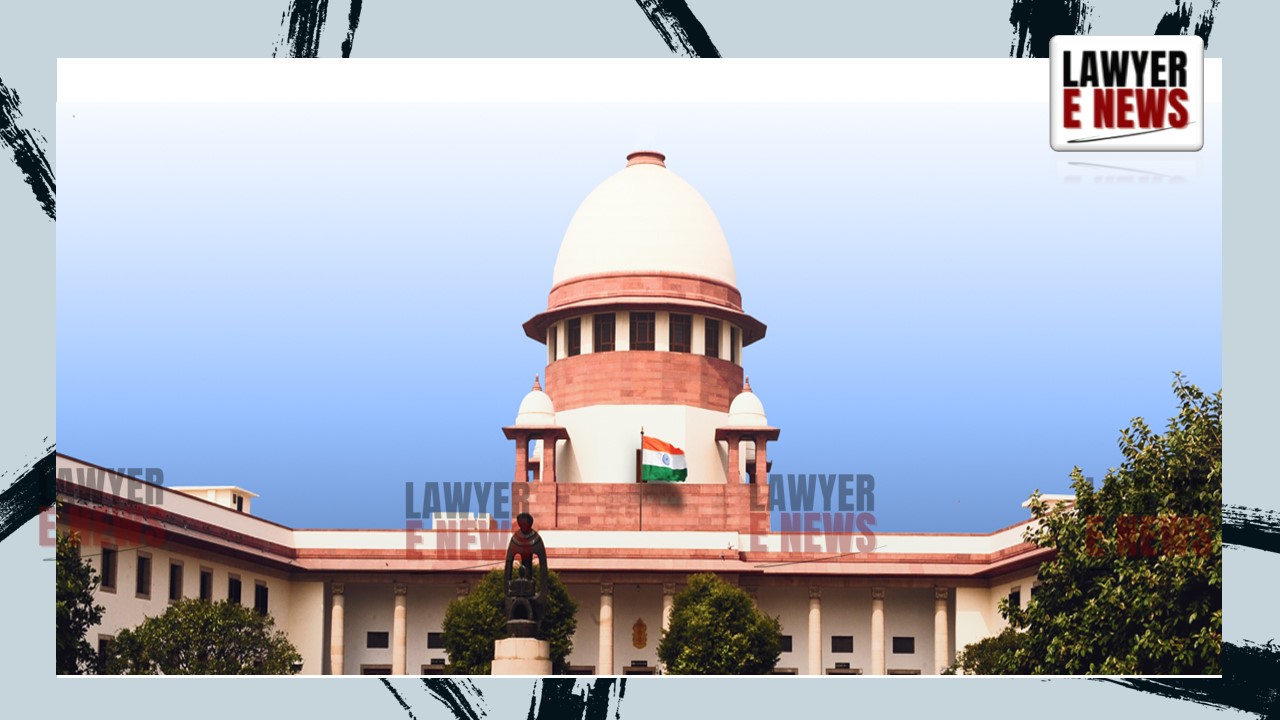-
by Admin
15 February 2026 5:35 AM



In a significant property dispute, the Supreme Court ruled against SK. Golam Lalchand, who had purchased a piece of joint family property from Brij Mohan, a co-owner. The disputed property, located at 100/3 Carry Road, Howrah, comprised 6 Cottahs of land with 17 rooms. The case stemmed from the plaintiff, Nandu Lal Shaw (the respondent), challenging the sale of the entire property to Lalchand on the grounds that it had not been partitioned, and Brij Mohan lacked the legal authority to sell the undivided property. The dispute traces back to a family ownership conflict, with both parties claiming rights over the property inherited from the brothers, Sita Ram and Salik Ram.
The original suit filed by Nandu Lal in 2006 was initially dismissed by the trial court. However, the appellate court overturned that decision, ruling in favor of Nandu Lal, which was affirmed by the High Court in 2021. Dissatisfied with the High Court ruling, Lalchand approached the Supreme Court in 2024, but the Court upheld the decisions of the lower courts.
The property in question was jointly acquired in 1959 by two brothers, Sita Ram and Salik Ram, from Sahdori Dasi. Both brothers had equal ownership of the property. Brij Mohan, Sita Ram’s son, claimed that his father had become the sole owner of the property after Salik Ram allegedly gifted his share to Sita Ram. Following Sita Ram’s death in 1975, Brij Mohan claimed full ownership based on a family settlement and the alleged relinquishment of rights by his sisters.
However, Nandu Lal, son of the other brother, Salik Ram, contested this claim, asserting that no such gift had been made and that the property remained joint and undivided. He argued that Brij Mohan had no legal right to sell the entire property without the consent of all co-owners or a formal partition.
In 2006, Brij Mohan sold the entire property to SK. Golam Lalchand, one of the tenants residing in the property. Lalchand, believing the sale to be legitimate, sought possession of the entire property. However, Nandu Lal challenged the sale, claiming that Brij Mohan could not transfer the entire property as it was jointly owned by both families.
The main legal issue was whether Brij Mohan, as one of the co-owners, could transfer the whole property without the property being partitioned and without the consent of other co-owners.
The Supreme Court, led by Justices Pankaj Mithal and Sudhanshu Dhulia, upheld the findings of the lower courts, reiterating that Brij Mohan did not have the legal right to sell the entire undivided property. The Court found that the property had not been partitioned, and as such, Brij Mohan could not claim exclusive ownership.
The Court emphasized that no evidence, such as a gift deed, was presented to substantiate the claim that Salik Ram had transferred his share to Sita Ram. Similarly, the claim that Brij Mohan’s sisters had relinquished their rights was unsupported by any documentary evidence. The Court noted that the defendant-appellant failed to prove either a family settlement or the sisters’ alleged relinquishment.
The Court emphasized that in cases of joint property, all co-owners have equal rights until the property is partitioned by metes and bounds. The sale of joint property without partition can only transfer the share of the selling co-owner, not the entire property. The Court relied on Section 44 of the Transfer of Property Act, 1882, which states that a co-owner can transfer only their own share in a property, not the shares of others unless partitioned.
The Supreme Court upheld the judgments of both the First Appellate Court and the High Court. Both lower courts had ruled that Brij Mohan did not have the exclusive right to sell the property and that the sale deed dated May 19, 2006, could only be valid concerning Brij Mohan’s share, not the entire property.
Co-ownership and Transfer of Property: The judgment reinforced the principle that undivided property cannot be transferred in its entirety by one co-owner without partition or the consent of other co-owners.
Burden of Proof: The burden of proving the existence of a family settlement or gift lies with the party making the claim. Since the appellant failed to provide documentary evidence, his claims were dismissed.
Section 44 of the Transfer of Property Act, 1882: The Court’s interpretation of this section reaffirmed that while a co-owner can sell their share, such a sale does not entitle the purchaser to rights over the entire property.
The Supreme Court dismissed the appeal filed by SK. Golam Lalchand, ruling that Brij Mohan could not unilaterally sell the entire undivided property. The Court upheld the injunction preventing Lalchand from taking possession of the property, preserving the rights of other co-owners, including the plaintiff, Nandu Lal. The Court advised that co-owners seek partition through legal means before any transfer of their share in the property. The sale deed in question was deemed valid only concerning Brij Mohan's share, and Lalchand was advised to pursue appropriate legal remedies to claim compensation or seek partition.
Date of Decision: September 10, 2024
SK. Golam Lalchand vs. Nandu Lal Shaw @ Nand Lal Keshri @ Nandu Lal Bayes & Ors.
